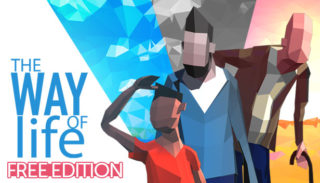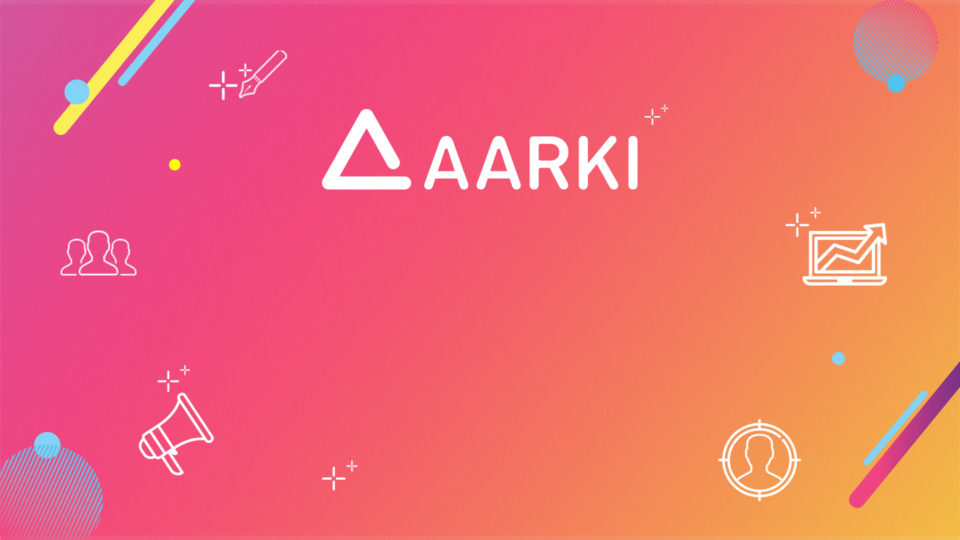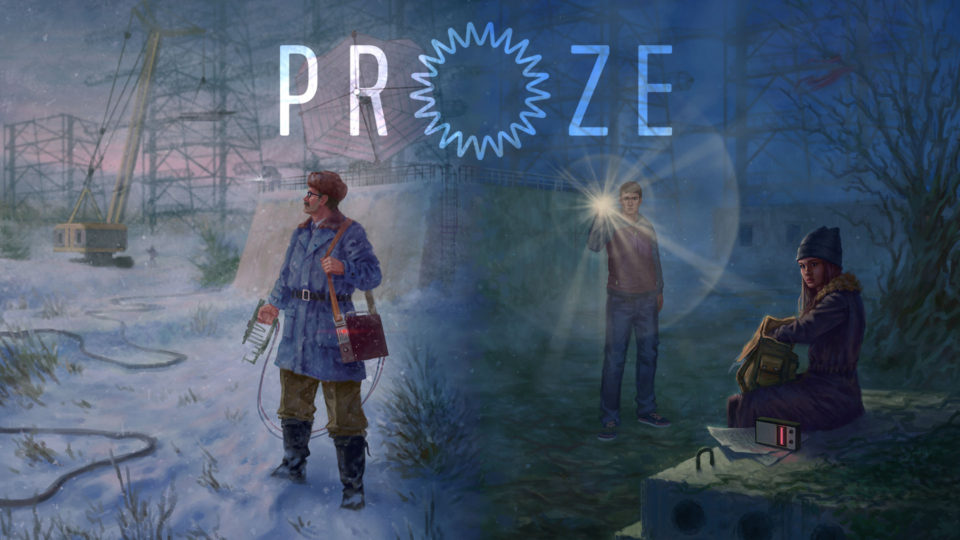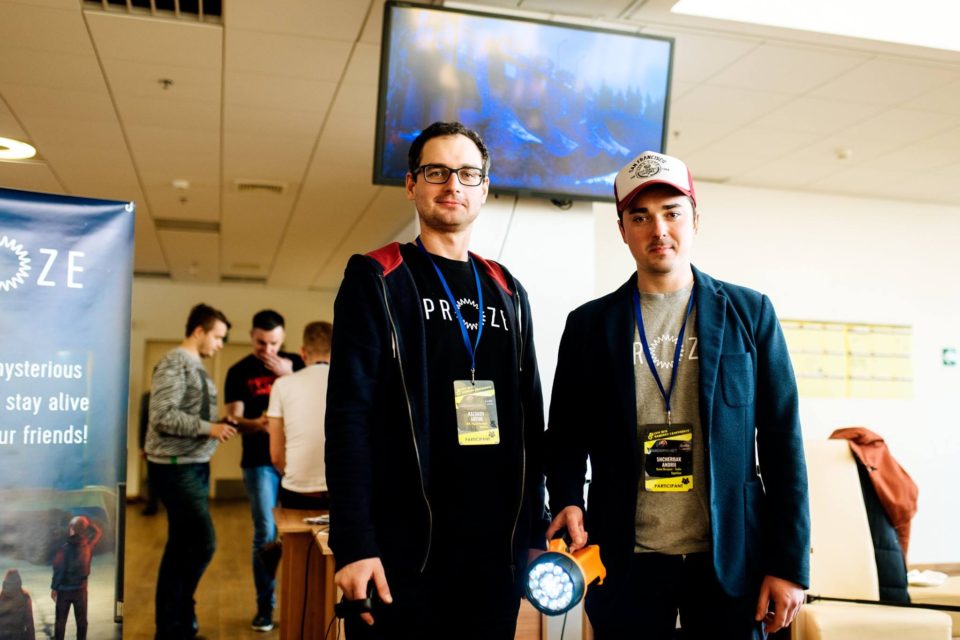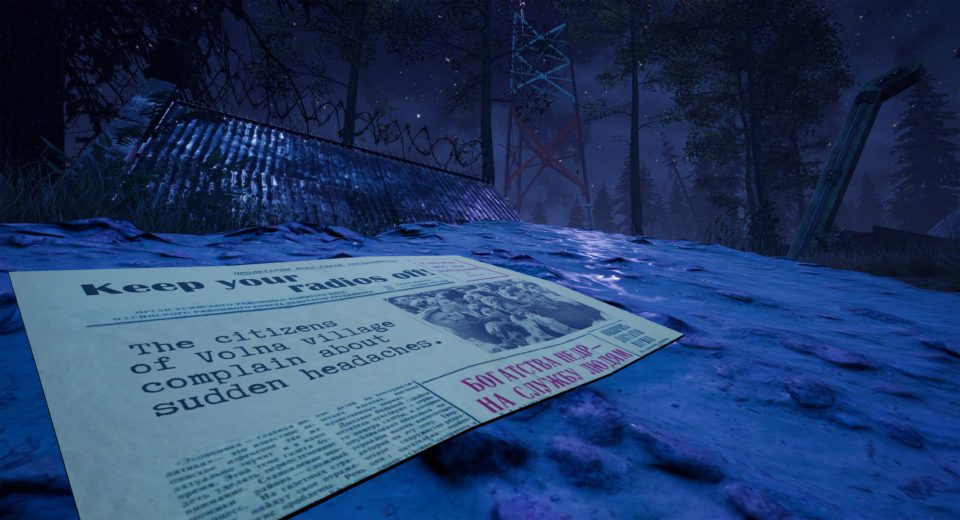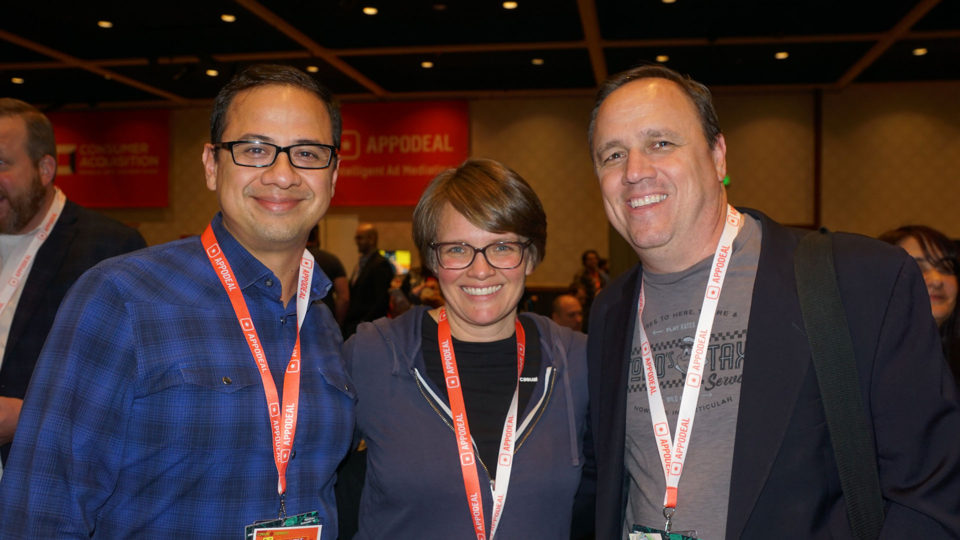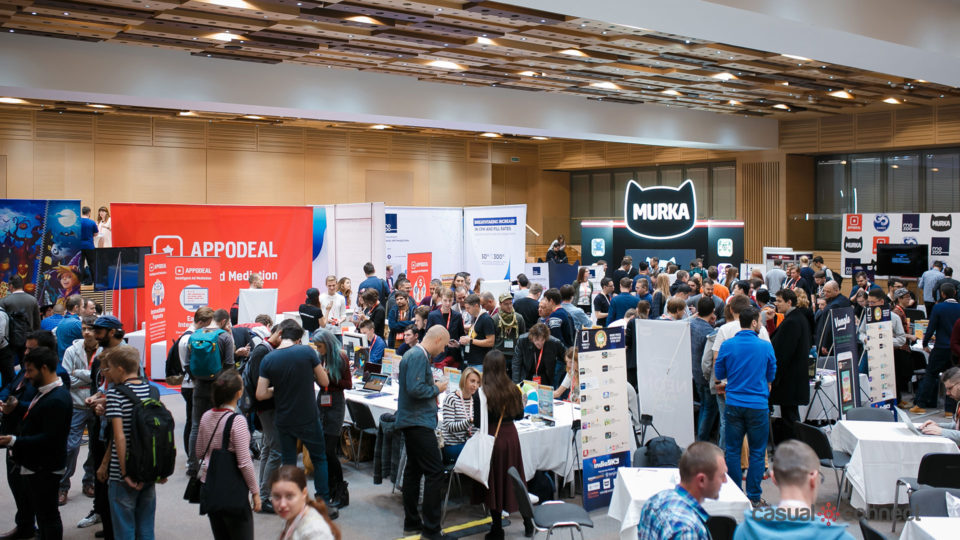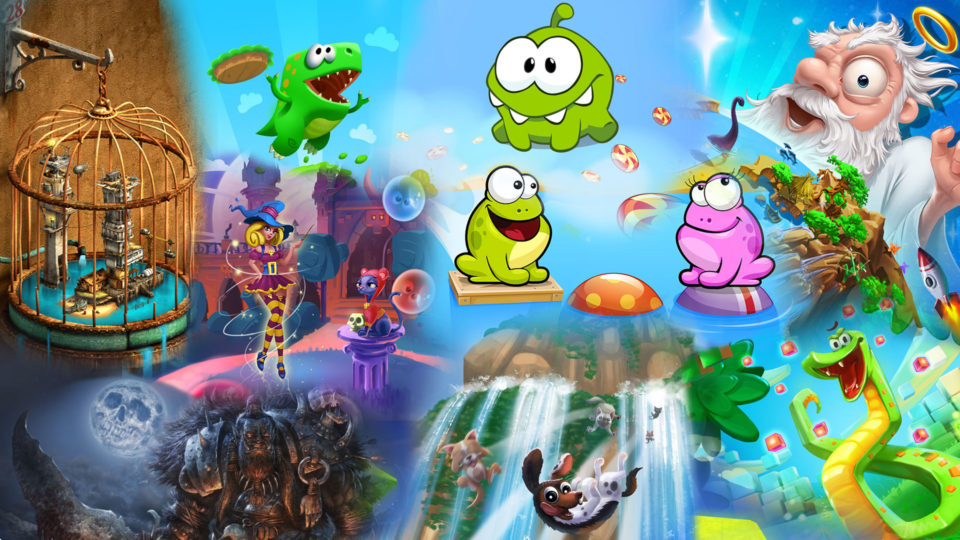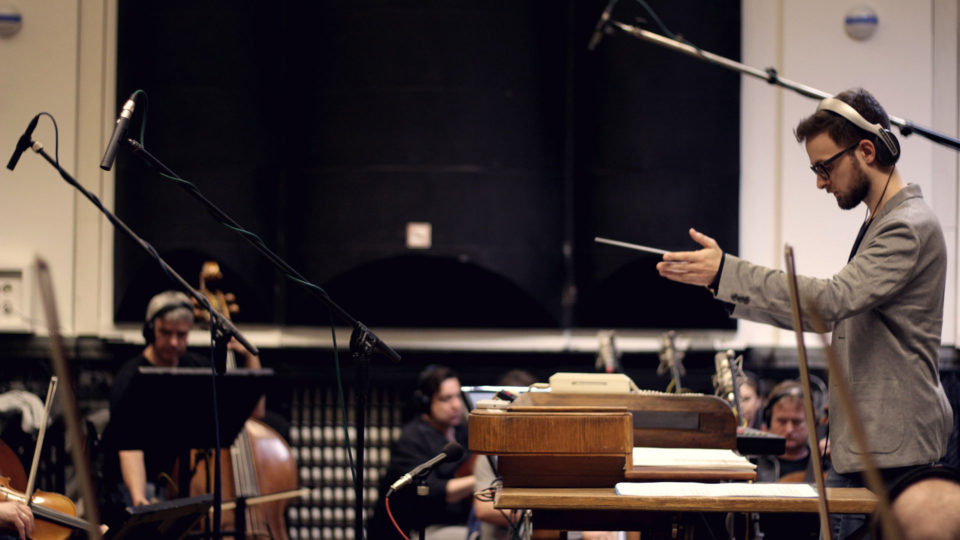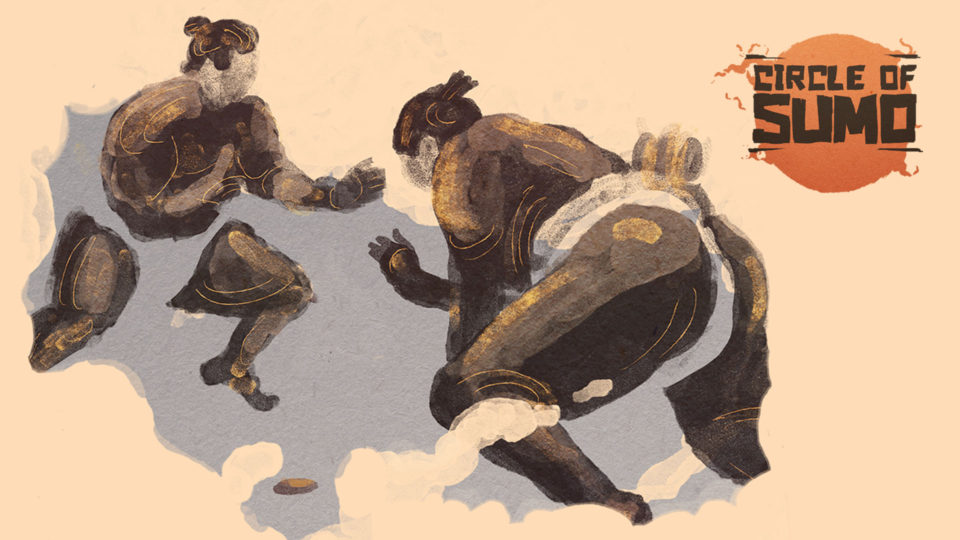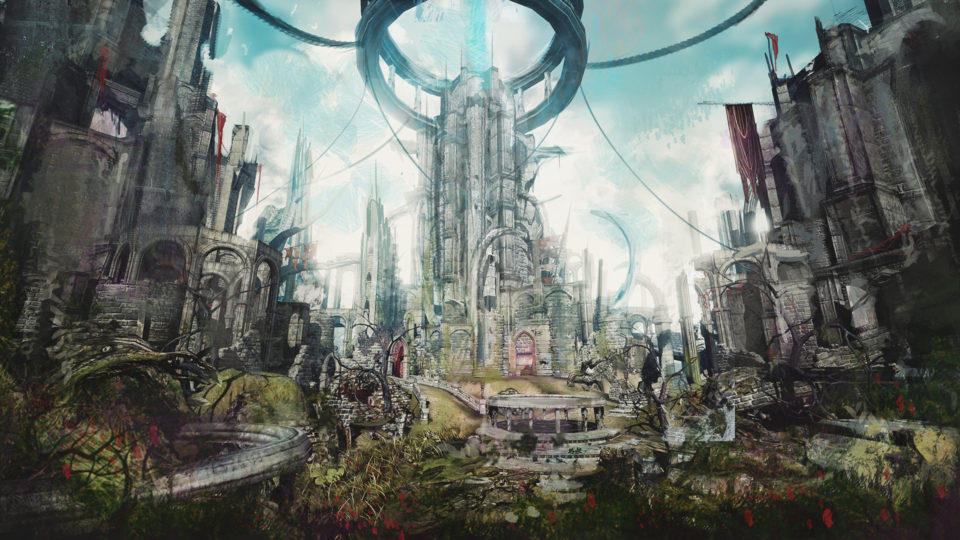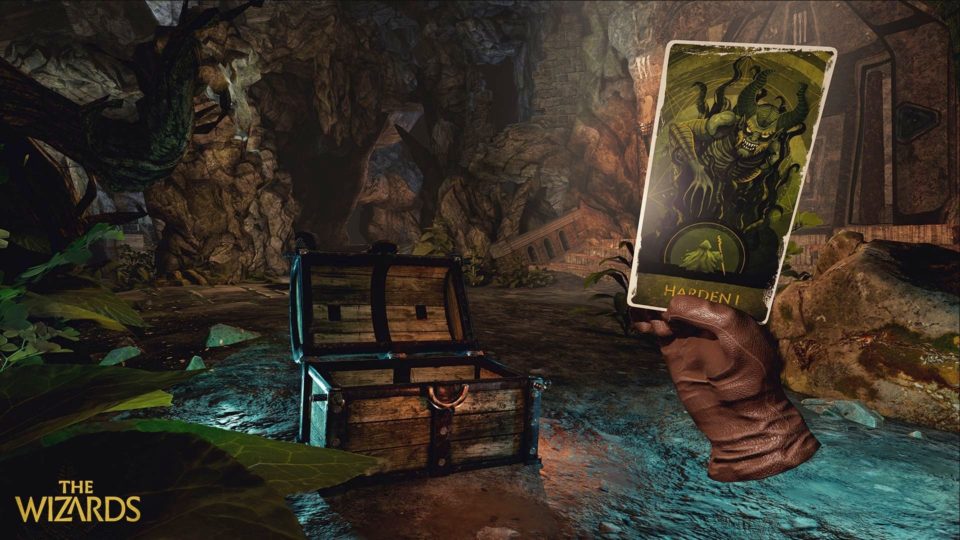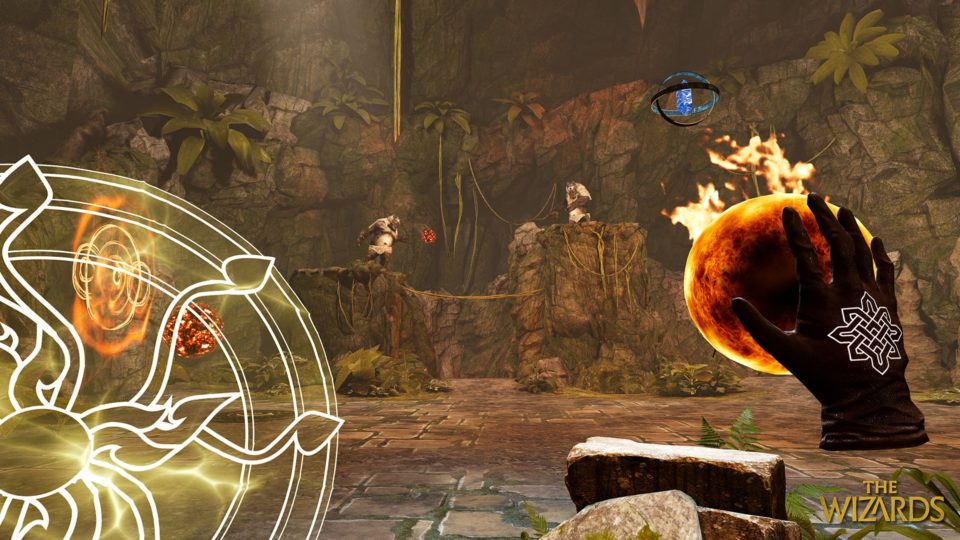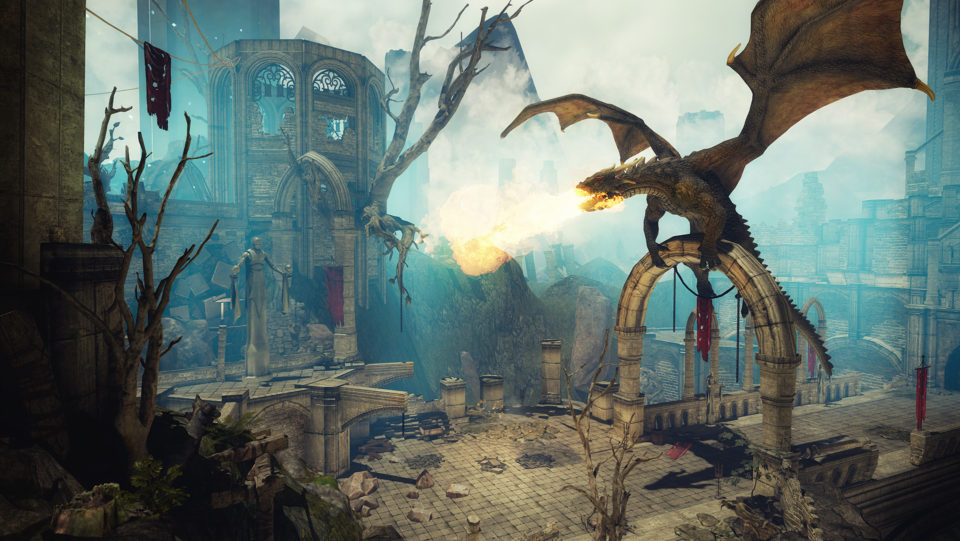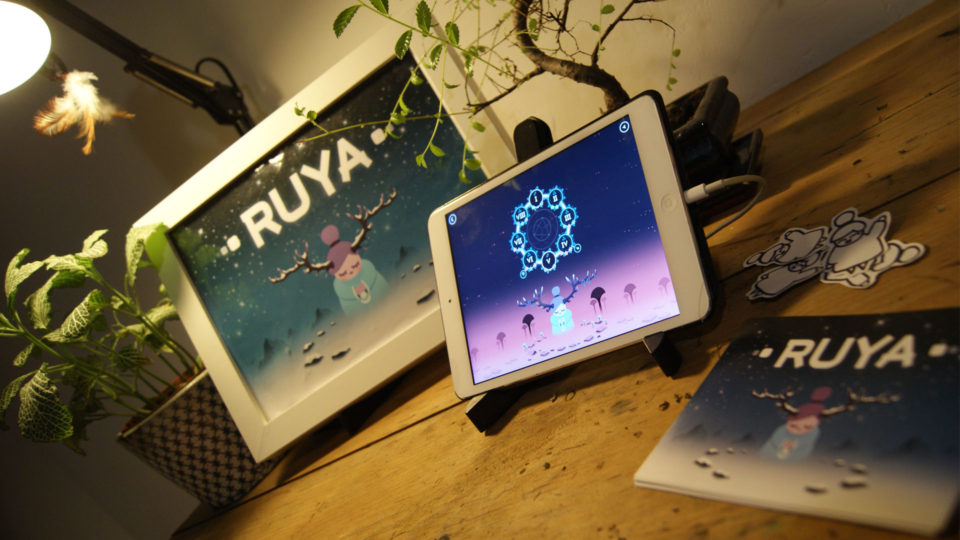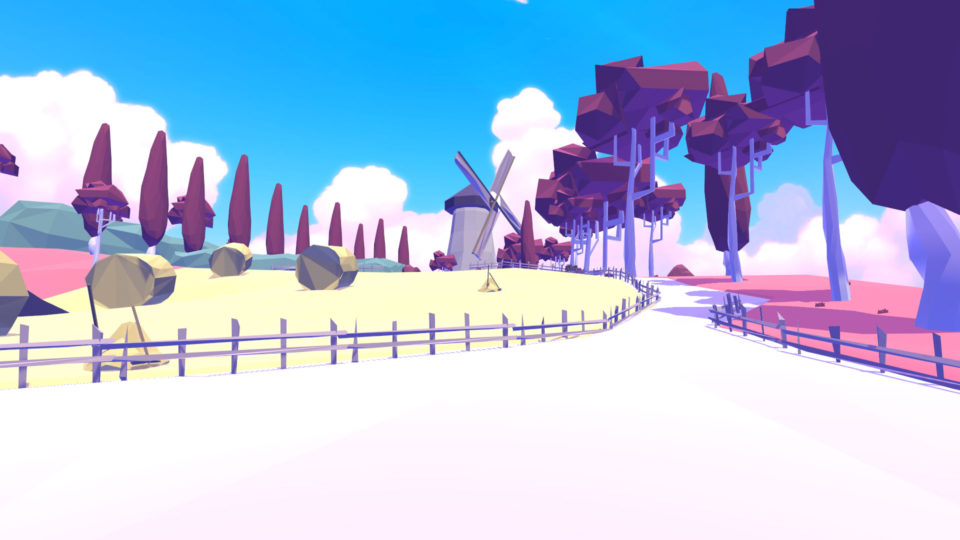At Casual Connect Europe, Nicol Cseko (VP of Product at Aarki) gave a talk entitled Level Up Your App Marketing with the Power of Creatives. She advised others on how to take the performance of your mobile app campaign up a notch by leveraging data for creative optimization. She also gave insights into successes and failures for mobile app campaigns and answered why they had the outcome that they did. Learn how you too can optimize ad creatives using data and previous lessons to deliver significant improvements in ad performance. Please see the video below for the full talk.
main
ContributionsIndiePostmortem
Creating PROZE by SignSine
Company/Team Introduction
We are SignSine - a two people game studio from Kyiv, Ukraine.
We are developing PROZE, an atmospheric survival adventure game focused on telling a compelling story “about friendship with massive Cold War conspiracy background” and providing an immersive experience in VR.
Where did everything start?
In August 2016, we went to a countryside house (dacha) nearby Kyiv with a company of old friends. After getting lost in the woods we were very inspired telling the story to each other from a different perspective. Some time after we decided to turn our memories of that evening into a game screenplay, that’s how the initial idea came together.
ContributionsIndustry
Behind the Title: An Interview with Jessica Tams, Founder and Managing Director of Casual Games Association
In this interview, yellowHEAD’s Marina Sapunova speaks with Jessica Tams about her life behind one of the most successful events in the games industry, why she moved to a farm and what she was like in high school.
Marina Sapunova: Hi Jessica! I’m happy to have you with me. I don’t think that you need an introduction for our audience, but it would be great if you could say just a few words about what you do.
Jessica Tams: I’m Jessica Tams - I am the Managing Director of CGA. We have a couple of things that we do: Casual Connect; we also organize Indie Prize, which is the scholarship program for indie developers; and a media outlet - Gamesauce.biz. We’ve been doing this for 13 years. We do 4 shows a year. So that’s what I do.
Marina: Nice! And you are so good at what you do! But let’s talk about Jessica. Who’s Jessica behind her title?
Kyiv 2017Video Coverage
Emmanuel Carraud and appChocolate: Succeeding with Games and Festive Apps | Casual Connect Video
With over 50 million downloads and having been #1 in App Store general ranking in over 40 countries for multiple apps, appChocolate shared their story at Casual Account Kyiv. Emmanuel Carraud, CEO and Co-founder of appChocolate also shared practical tips on how to launch successfully mobile games for independent studios and indie developers including KPIs, localization, ASO, analytics, PR, monetization, user acquisition, App Store ranking on iOS and Android. Listen to the full lecture entitled How to Make Your Next Game Go BIG below.
Kyiv 2017Video Coverage
Michael Haberl: Operating Outside the App Stores | Casual Connect Video
Join Michael Haberl, Founder and CEO of Xendex, at Casual Connect Kyiv 2017 as he described the dozens of smaller stores out there for apps and encouraged developers to think outside of the box. These small stores offer mobile games as premium products or via subscriptions. There truly is success to be found in such niches. Michael’s presentation takes a closer look at these alternative app stores and markets, the players in there, business models and how developers can access them.
AudioExclusive Interviews
Nicolas Diteriks and They Are Billions: Making Music Part of the Gameplay
Nicolas Diteriks is the composer who created the music for Numantian Games 2017 game, They Are Billions. Nicolas had worked earlier with Numantian Games in 2013/2014 when they were developing Lords of Xulima. At the time, Numantian Games was doing an Indiegogo campaign; Nicolas noticed the project and sent them a demo-reel, asking if they needed a composer.
When asked about the proudest moment of his career, Nicolas says landing the job of composing for The Lords of Xulima is right at the top. (And, of course, so is the first time he went to record with a live orchestra.) The Lords of Xulima project went so well that Numantian Games invited Nicolas back to work on They Are Billions.
DevelopmentExclusive InterviewsIndie
Yonder and the Circle of Sumo
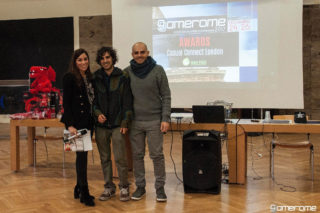
At GameRome 2017, Yonder won the Indie Prize award for their game, Circle of Sumo, giving them an invitation to participate in Indie Prize at Casual Connect Europe 2018. They tell us that events like GameRome are essential to receiving “hot feedback” on the game you are creating. As well, they are opportunities to connect with many professionals and increase your network. GamerRome 2017 hosted many international representatives of the game industry. It was especially exciting for Yonder when two of them, Dave Gomes and Simon Gerdesmann, chose Circle of Sumo as the best game of the show. Gamesauce has been fascinated to learn more about this winning team and their game from Giuseppe Mancini, their game and level designer.
DevelopmentExclusive InterviewsIndie
Paweł Gajda: Casting New Spells with The Wizards
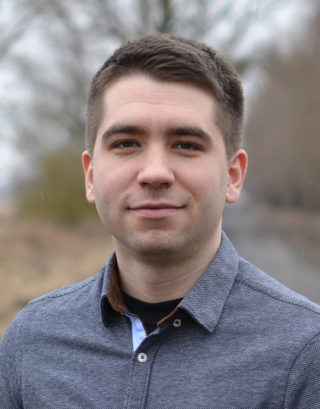
Participating in the History of Virtual Reality
Carbon Studio was founded by three friends who had been working at The Farm 51 (known for the game Get Even) and go out on their own. They came to this decision after learning of the Oculus Rift Development Kit and discovering a desire to create games for this new platform from its earliest days. They wanted to take part in the history of virtual reality as it was being written. And the games they choose to develop are those they would like to play – a common motivation among game developers.
Carbon Studio has its office in Gliwice, Poland and all the team exceptPaweł work there; he works away from the office. The majority of the team members are from the Gliwice area, which is part of a larger metropolis in the culturally and industrially rich region of Upper Silesia, and others have moved their families there. Most feel lucky to work close to home.
Paweł came to Carbon Studios after working in the film industry as a set manager. A director who knew of his passion for video games and new technology invited him to join a meeting with the owners of Carbon Studio, and he came out of it with a strong desire to work as a VR game developer. Not long after he joined the studio and his first task was to write the story for their first game, Alice VR. He also designed one of the puzzles for Unreal Engine 4. Currently he is responsible for communication and managing business development.
Total Focus on VR
Carbon Studios decided to focus entirely on VR games since players with VR headsets usually stop playing traditional games. “When you try VR once, there’s no going back,” Paweł claims. They expect VR to become more and more popular, so they treat developing for VR as a long term investment. As Paweł said, “I don’t believe it will replace traditional games in the future, but I think it may become as popular as console games, with millions of units sold.”
They began working on The Wizards shortly after the Oculus Touch controllers were announced for the Oculus Rift headset. The idea of seeing and using your hands in a natural way in virtual reality was something they found deeply inspiring. At Carbon Studio they didn’t just want to reproduce activities from ordinary life; they were determined to create something that was possible only in the limitless world of VR. So they decided to fulfill a dream of becoming a powerful wizard and casting spells. Both Dr. Strange and Harry Potter were useful inspirations in their direction.
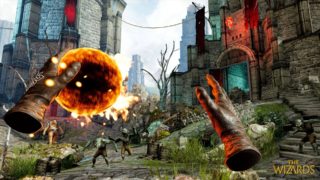
Unexpected Turns
The development of The Wizards took a few unexpected turns along the way. The game started out as a simple wave shooter that could be completed in less than an hour. The idea of the game was to have the player stand on a platform and prevent the enemies from reaching the village behind. As they were developing the game, they realized it would be more interesting if the player could teleport between many platforms. It still felt too limiting, so they added free movement and free teleportation. The Wizards turned from a simple wave shooter to an action adventure with a lot of exploration.
As they were developing The Wizards, Carbon Studio decided to test at a very early stage of development. They organized alpha and beta testing, each time using the VR community, with testers filling out a beta form. It was extremely useful and gave them many outstanding ideas, but the results turned out to be a bit misleading. The feedback on the movement scheme was overly positive. Once the game was released, players who had paid for the game criticized Carbon Studio’s choice to stick with node-based teleportation. Apparently the beta testers were happy to have been chosen to test the game and were unwilling to criticize too much. This is something the company will keep in mind for the future.
On the other hand, some of the testers gave much more than they were asked for. One not only filled out his survey, he also provided several hours of videos of him playing the game, finding bugs and giving feedback. He then pitched the game to his boss, owner of a VR arcade, and has become one of the game’s most avid fans. When someone on the internet suggests the game is similar to another, he responds that it is, but better. He has now become one of Paweł’s personal friends, and Paweł says, “It was worth organizing the testing just to meet this guy.”
After Carbon Studio released The Wizards on Steam Early Access, they had many players criticizing the movement scheme and soon there were “mixed” reviews on Steam. This was totally unexpected because of the positive reviews from closed beta testing. They responded three days after the release by announcing that they would add free locomotion, a less restrictive way of moving in VR, which the players had requested. As soon as this feature was promised, the positive reviews on Steam began. Now that the free movement update is out The Wizards is a much better game. There have been even more positive reviews and a significant increase in sales.
The Virtual Reality Revolution
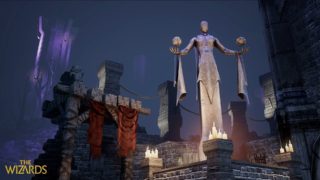
Carbon Studio’s monetization method is the premium model, releasing their games on Steam and the Oculus Store. The user base for VR is not yet large enough for freemium to be a workable method.
Inspirations for their games can come from anywhere. For example, Alice was influenced by Alice in Wonderland but the plot of the game is original. However, characters, themes and mechanics do have references to the book, such as shrinking and growing, or the Hatter’s riddles.
Carbon Studio’s projects are led by one of the three founders of the company, supported by the other two. Each of them has different skill sets and specialize in different areas of production.
How the Project Grows
A project usually begins with a brainstorming session with the entire team. They want to be sure they are working on a project that is relevant, interesting and completely understandable for everyone. After establishing this basis, most of the decisions will be made by the leads, but they are always open to ideas and suggestions from all team members throughout the development process. And, of course, changes are made all along the way.
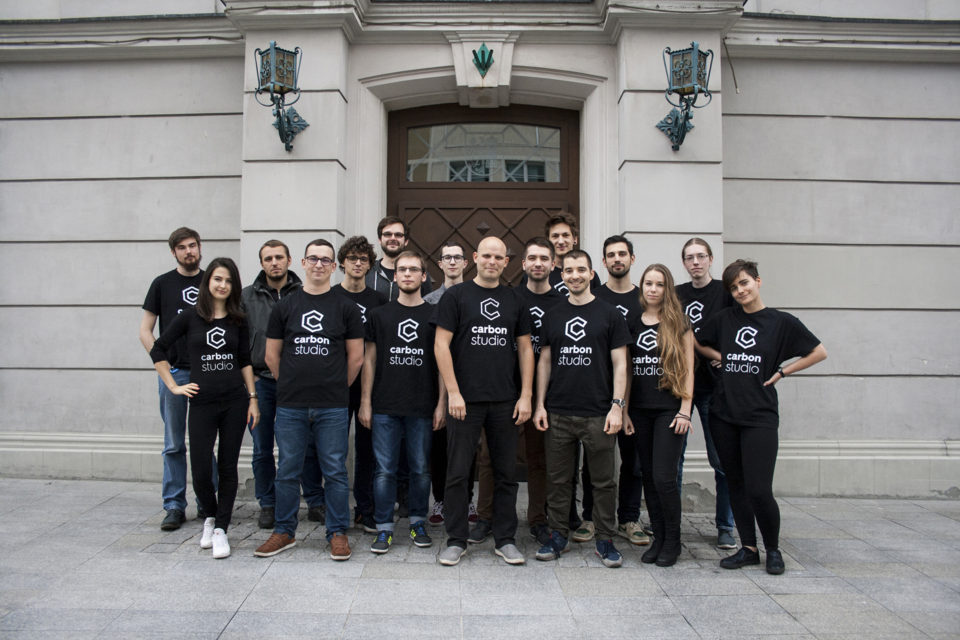
As their experience in game development grows, they put increasing importance on alpha and beta testing. With The Wizards, they turned to Reddit and active users on the platform for their users. They were reaching out to future potential users and building a fan base. The choice was not quite as good as they anticipated, with the results more positive than was seen in users after early release. In the future, Carbon Studio will find more impartial testers as well as using the VR community.
When designing the visuals for their games, their basic principle is to minimize the compromises involved in designing for VR. They are fascinated by mega-scans and realistic assets, but there is a certain amount of unavoidable stylization. Although compromises are unavoidable, constantly improving optimization on UE4’s end mean the options for visuals are also constantly expanding.
The humor of The Wizard comes from the narrator played by Jason Marnocha, who leads the player through the world and its story with flair and sass. As well, the designers hid curios and Easter eggs for those who explore the levels in detail. And the developers are particularly proud of the first encounter with the dragon.
Six weeks after the early release, Carbon Studio introduced a Free Locomotion Update. The update allowed the players the choice between free movement and free teleportation which were both new ways to explore the world. There were also new map areas, item pick-ups, and new interactive world elements, each crafted to encourage and reward thorough exploration. Last November they released Arena Mode in which players can face off with endless waves of enemies, testing skills and spells they have learned in the campaign. They also added another new region and new chapter to the story called Shrike’s Desert, concluding the commitments to the Early Access and marking the full release of the game.
On March 8th, Carbon Studio had a full release of The Wizards. The full release of the game comes with epic boss fights, new story chapters, and empowered spells for the ultimate experience in wizardry. Paweł reflects, “We are grateful to everyone who trusted and supported us with invaluable feedback during Early Access. We are humbled that so many players joined us on this exciting adventure and we hope that the new content will meet our players’ expectations.”
Feedback!
If you are an indie developer, Carbon Studio reminds you that it pays to iterate fast and fail early. Don’t be afraid of criticism; feedback is incredibly valuable throughout the development process. Share an early demo on a platform with many users. If the feedback is negative, you will save months of working on potentially unpopular features; if it is positive, you have the beginnings of your fan base. Similarly, it is useful to create a Steam page and social media profiles to spread the word about the game, allowing people to observe it and add it to their wishlist.
You should never release a game without gathering feedback during production. And never tell someone who gives you negative feedback that they are wrong. If you are selling a product it won’t help to antagonize anyone.
ContributionsDevelopmentIndiePostmortem
Ruya: We’re All One
Founded in 2016, Miracle Tea is an independent game developer made up of Bradley Smith, Tom Andrews, Enrico Ercole and Gav Amante. Based around Ipswich, they met at the University of Suffolk and Brains Eden game jam. The team aspire to make games that tap into deeper emotions to touch players in meaningful ways. Ruya was their first release. Bradley shares some insight.
Tranzfuser Days
Tom and I were both freelancing on the same project together. He showed me an old prototype he built from Uni. I had just competed in the Indie Speed Run and produced some artwork that I thought had some potential, so we pretty much combined two. Our goal was to re-imagine match style games with positive vibes and bring elements into the genre that you might not normally see.
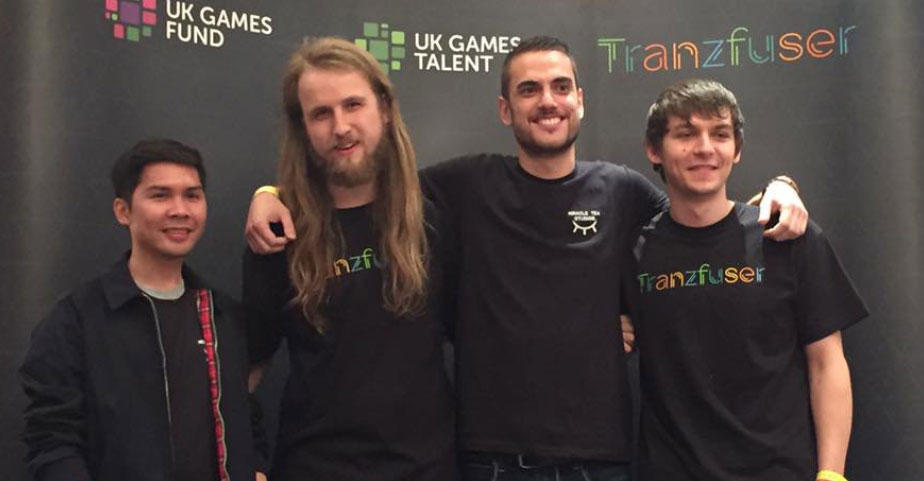
We submitted the original prototype to the Tranzfuser programme back in 2016 – it’s a national funding scheme for graduates in the UK. We were fortunate enough to be one of the teams selected with a successful pitch for funding. This floated a chunk of our development. The team that rxun it have been lovely to us and amazing to work with.
DevelopmentExclusive InterviewsIndie
CyberCoconut: Creating With Passion
The game that won Best of the Show Award at Codemotion 2017 in Milan was The Way of Life Definitive Edition from CyberCoconut. This is the first game from CyberCoconut, with release expected during the first quarter of 2018. They will also compete at the upcoming Indie Prize competition at Casual Connect Europe in London.
Founding a Company with a Shared Vision
